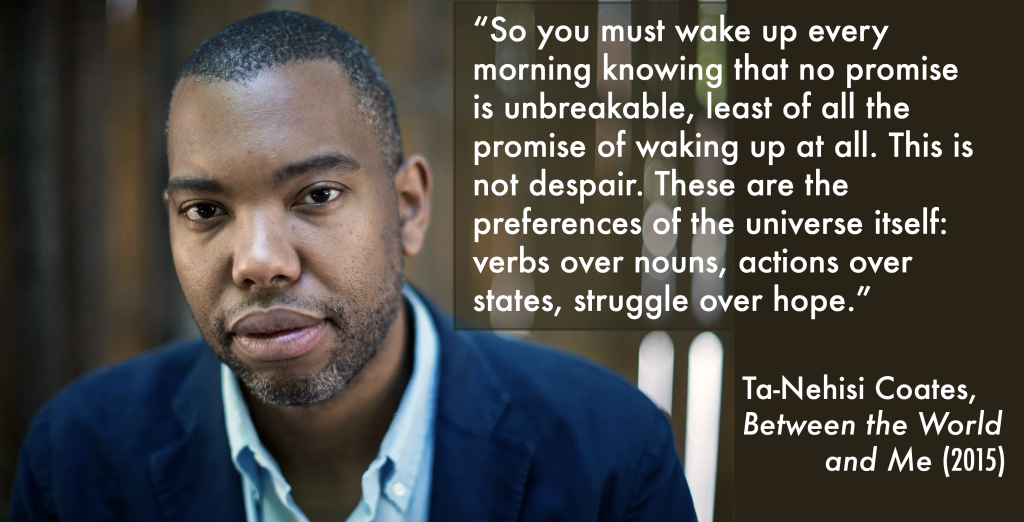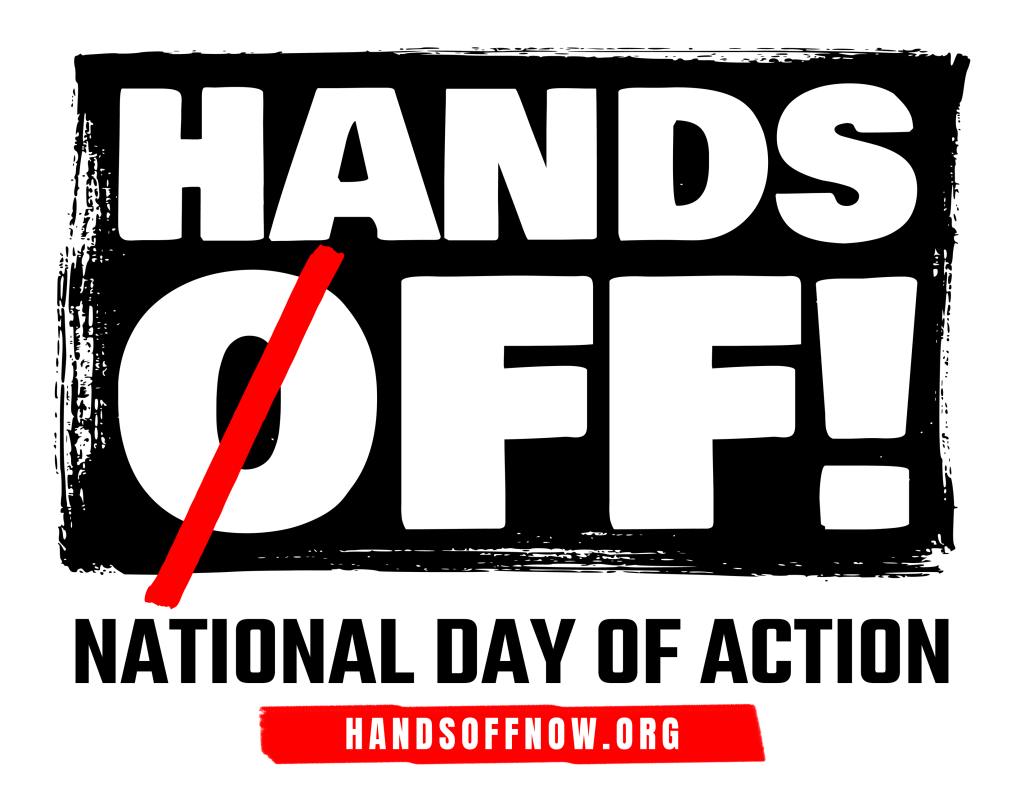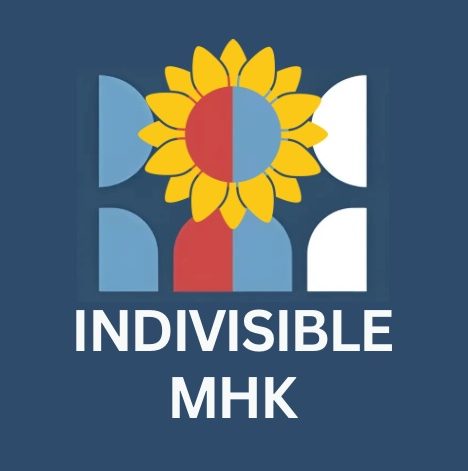What do we need to keep going?
This post also appears on our IMHK Substack
Perhaps you, too, are wondering: How do we keep going?
And: How do we stay hopeful?
Even: Is hope what we need to keep going?
Ta-Nehisi Coates argues for struggle over hope. In Between the World and Me, he writes: “So you must wake up every morning knowing that no promise is unbreakable, least of all the promise of waking up at all. This is not despair. These are the preferences of the universe itself: verbs over nouns, actions over states, struggle over hope.”

Sarah Kendzior says she doesn’t believe in hope at all. In Hiding in Plain Sight, she tells us: “People ask me how I find hope. I answer that I don’t believe in hope, and I don’t believe in hopelessness. I believe in compassion and pragmatism, in doing what is right for its own sake. Hope can be lethal when you are fighting an autocracy because hope is inextricable from time. An enduring strategy of autocrats is to simply run out the clock.”
Though both counsel against hope, I experience both statements as manifestations of hope. To be committed to the struggle is to be reminded that hope is not mere optimism. Hope is transforming your convictions into action. Hope is doing something.
Doing what is right for its own sake is an expression of hope because it believes in a moral order, and that humans — out of “compassion and pragmatism” — should uphold that moral order. We can and should do what is right.
Yet, having argued that these are forms of hope, I often find their anti-hope formulations more persuasive than an invitation to hopefulness — because Coates and Kendzior acknowledge how hard hope is. I look around, and I think: yeah, struggle is definitely more reliable than hope. All too reliable. It is all around us, and we need to commit to it — in whatever manner we can.
And to do what is right for its own sake, as Kendzior reminds us, disaggregates hope from time. Autocracies rely on time, on their own ability to run out the clock. It is hard to continue hoping as the autocracy works to grind you down, to crush your spirit, to encourage despair.
I think I find their anti-hope expressions hopeful and helpful because I am not myself a natural optimist. I am a natural melancholic.
So, for my adult life, every morning, I wake up and I consciously orient myself towards possibility. I choose optimism. I decide to commit to hope — just so that I can get out of bed, get through the day, get anything done at all.
I felt really seen in listening to this interview with John Green yesterday, in which he says: “I keep learning again and again that hope is the right response to the human condition. And I have to learn this over and over again because despair is an incredibly powerful force in my life and something that I have to battle on an almost daily basis.”
So, in this time, when things are bad and getting worse at a truly breakneck pace, I am grateful for having learned this habit of thought. To my surprise, decades of orienting myself towards possibility has turned out to be a muscle that I did not know I had.
I thought that, to survive the regime I was going to need weekly or at least monthly therapy. I may yet need that, of course. This is not a criticism of therapy. Rather, it’s a reminder to that hope is a choice, and is an invitation to make that choice.
Indeed, I dictated a draft of what you are reading right now, while sitting on an exercise bike, alone, before dawn this morning. This essay is me talking myself into hopefulness — and, perhaps, talking you into hopefulness?
In the face of rising autocracy, accelerating climate change, and shockingly enthusiastic cruelty, choosing hope or optimism is hard. Reading these words in this time might make you question my sanity. I get that.
But the reason for choosing hope or optimism is that they can be a catalyst for action. I often think of Howard Zinn‘s call for optimism in dark times. In “The Optimism of Uncertainty,” he writes:
To be hopeful in bad times is not just foolishly romantic. It is based on the fact that human history is a history not only of cruelty but also of compassion, sacrifice, courage, kindness. What we choose to emphasize in this complex history will determine our lives. If we see only the worst, it destroys our capacity to do something. If we remember those times and places — and there are so many — where people have behaved magnificently, this gives us the energy to act, and at least the possibility of sending this spinning top of a world in a different direction. And if we do act, in however small a way, we don’t have to wait for some grand utopian future. The future is an infinite succession of presents, and to live now as we think human beings should live, in defiance of all that is bad around us, is itself a marvelous victory.
Yes. We must remember the people who, in the worst of times, have worked to do the right thing, who have opposed tyranny, who have helped the vulnerable, and who have fought for justice. This, as Zinn says, is not foolishness. It’s the spirit we need. We need to rediscover our belief that a better world is possible. Because a better world is possible. And all of us deserve to live in that better world.
There are fascist clowns running the show right now, but their ideas aren’t popular. And the people implementing them aren’t that competent. As Rebecca Solnit says, it’s a “stupid coup.” For any who didn’t already know this, the war-bro text chain has offered some spectacular evidence.
The stupid coup is of course also a real threat — and a threat that is not distributed evenly throughout society. That’s how power works: The vulnerable are always in greater proximity to harm than the powerful.
It’s also how fascism works: divide and conquer. It’s the famous quotation from Martin Niemöller. You certainly know it, even if you don’t remember his name:
First they came for the communists, and I did not speak out – because I was not a communist. Then they came for the socialists, and I did not speak out – because I was not a socialist. Then they came for the trade unionists, and I did not speak out – because I was not a trade unionist. Then they came for the Jews, and I did not speak out – because I was not a Jew. Then they came for me – and there was no one left to speak for me.
That’s key to the fascist’s divide-and-conquer approach. Go after certain groups, allowing others to assume that they are safe — even though, of course, no one is safe.
But since I am writing about hope here, let me conclude with 5 reasons to keep hoping.
1: People can change. Before Martin Niemöller opposed the Nazis, he supported them. In 1933, he welcomed Hitler’s “national revival.” By 1937, his opposition had evolved to the point that he was arrested and, in 1938, imprisoned in concentration camps — where he would spend the rest of the war. He changed his mind, took responsibility for his actions, and became an outspoken advocate for human rights. If it can happen for people who supported Hitler, it can happen for people who voted for Trump.
2: The swift pace of destruction creates opportunities for more people to change their minds. A competent autocratic putsch would not destroy everything all at once. Instead, it would destroy just the democratic parts and leave other systems functioning. However, Mr. Musk has decided to take a chainsaw to everything that (in his view) does not increase his own personal wealth. In addition to being further evidence that possessing wealth is no evidence of also possessing intelligence, this approach undermines the autocratic takeover. As Rebecca Solnit writes, “Every cruel and destructive action by the Trump Administration is a recruiting opportunity for the opposition.” For any who are pro-democracy, we have a real opportunity right now.
3: Don’t despair if for no other reason than this: despair is a gift to the autocrats. That’s why this has all been happening so fast. They want to overwhelm you so that you give up, and lose hope.
And I admit that it’s a really effective strategy. I’m exhausted. You’re exhausted. We’re all exhausted.

But don’t despair. We shouldn’t give the autocrats what they want. They deserve no presents. So, I’m not giving these grifters, liars, and bullies any gifts. Ever. They seek our obedience. But they can’t have it. And respect? Out of the question. They’re too cruel, incompetent, and dimwitted to earn our respect.
4: To quote the late Palestinian-American journalist Shireen Abu Akleh, “Keep your spirits high, this is going to take a while.” We must continue to act, no matter how bad things get. And things are going to get worse before they get better.
So, summon whatever you need to keep your spirits up. Maybe hope is not the right word for you. Maybe the right word is faith. Or morality. In my case, I’m sure stubbornness plays a prominent role. I was bullied as a child. I really don’t like bullies.
Whatever you need to summon — whether it’s hope or something else or a combination of many things — summon it.
5: Community helps sustain hope. So, join your local Indivisible. If you are in or near Manhattan Kansas, join Indivisible MHK. Or join Fifty Fifty One, or Public Citizen, or the Working Families Party, or any the different groups who are standing up, speaking out, calling our reps, taking to the streets.

Join us on April 5th when we all say “Hands Off!” to the Trump-Musk regime. Hands off Social Security, Medicaid, Medicare, the National Parks, science, education, clean air, clean energy, our schools, our libraries, our free speech, veterans services, the courts, LGBTQ+ rights, civil rights, immigrants, Canada, Greenland, Panama, cancer research, our jobs, our wallets, and the public good.
Here in Manhattan, Kansas, we will be gathering from 11:30 am to 1:30 pm on the north corner of Poyntz and 11th Avenue. If you’re not near us, find a group near you. Or start one of your own.
There is a better world than the one these fascist idiots are forcing upon us. We deserve that better world. And we are willing to fight for it.
Join us.
— Philip Nel & Indivisible MHK

Sylvia Beeman